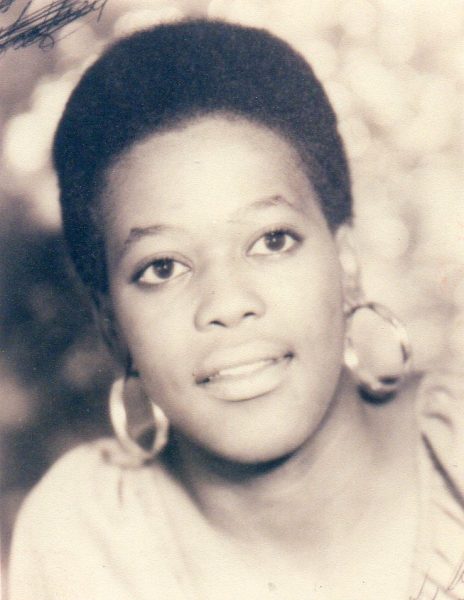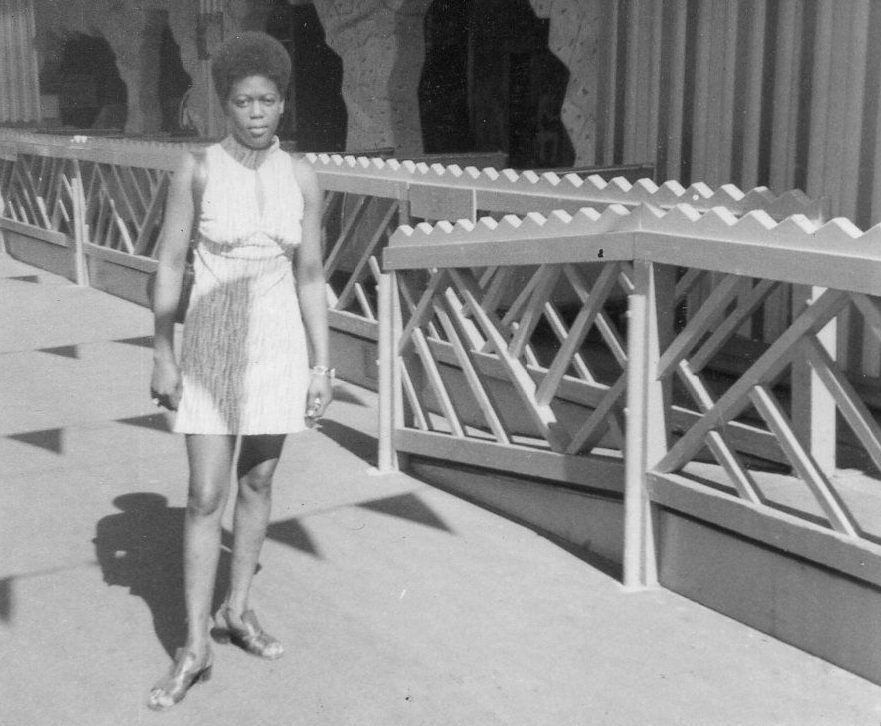As Black History Month ends, we remember Shirley J Meadors, a former San Diego State University student whose passion for activism helped shape a major chapter of San Diego’s history.
Shirley Jean Meadors, born in 1947, was a civil rights figure whose name was somewhat lost to history until recently.
Meadors was a single mom studying political science at SDSU when she met her boyfriend, Kenneth “Kenny” Denman, through the school’s Black Student Union. In 1968, prominent Black Panther Party leader Eldritch Cleaver reached out to them to start a chapter in their community.
The couple founded San Diego’s chapter of the Black Panther Party on SDSU’s campus, an often under-discussed part of the school’s role in the civil rights movement.
Meadors and Denman’s contributions included organizing and launching the free breakfast program for children in southeast San Diego at Christ the King Catholic Church.
With a life dedicated to activism, there is a notable absence in her story being told in the San Diego community.
Meadors is remembered through her brother, Henry Wallace, the current chairman of the San Diego Original Black Panther Party for Community Outreach, who is happy to share his sister’s story.
“When she started studying Black studies, that (was) when she got an idea of who she was as a Black woman,” Wallace said regarding his sister’s decision to dedicate her life to activism. “So, she took that to help move the civil rights question forward. She wanted to do her part for the community.”
Wallace remembers his sister as more than a local civil rights figure but as a complex woman. His memories of his sister were of her beauty, strength and inspiration that united her community.
“She loved fashion all the way back in the ‘50s when they had the big hair with the embroidery dresses,” Wallace said. “She’s just always loved the latest fashion. She did some fashion shows where she just modeled in them and stuff. She was very stylish. A lot of people loved her for that.”
Meadors’ time at SDSU proved to be instrumental in her activism. She prioritized learning and educating the people in her community.
“She was always an A-B student,” Wallace said. “She was very education-focused. She’s the one that taught me that no question is stupid. It’s stupid if you don’t ask the question.”
Wallace and his family were inspired by his sister to take his education seriously.
He remembers his sister as someone ahead of her time — someone who modeled her life after empowering the Black community through her own life.
Wallace talked about her fierce independence and inspiring journey that led her to pursuing activism in San Diego.

“Shirley got married when she was fourteen years old,” Wallace said. “She grew into her own womanhood.”
Meadors was an early role model for Black women. After a experiencing an abusive marriage at a young age, she decided to take her life into her own hands.
“She grew to understand that she couldn’t live like that,” Wallace said. “She needed to be her own person. She left (her marriage) and came back to San Diego with us in ‘67 and met Kenny Denman.”
This became a turning point in her life and developing into the woman Wallace remembered so fondly.
Shirley learned from her mother, Evelyn Wallace, who later changed her name to “Evelyn Germany.” Germany raised Shirley and Henry with a sergeant in the military.
“From day one when we were born, my mom made sure that her boys were taught everything,” Henry said regarding his mother. “She taught us how to cook, clean, how to iron our own clothes and how to be men as kids.”
The way Henry and Shirley were raised greatly influenced their view of equality and their desire to work toward social change.
Wallace said their mother taught them the importance of self defense, which would later found their involvement with the Black Panthers. He recalled how the lessons his mom instilled in him lead to his and his sisters belief systems.
“When somebody attacks you, you have all the right to attack them,” Wallace said. “They’re going to feel as much pain.”
The Black Panther Party was founded on self defense — a reaction to the violent racism of the 1960s. Members formed a group based on protecting the Black community from police brutality and hate crimes.
“That’s the motive of the black panther,” Wallace continued. “Black panthers don’t attack unless they’re threatened, so they attack back. And that was the way (Shirley) lived most of her life.”
The Black Panther Party was ordered to disband in 1982, and in the following decades, many of their contributions to San Diego had been buried.
In his time doing public transportation work in the 1990s around SDSU, Wallace found that he had to inform people the San Diego Original Black Panther Party was formed right on the campus. He felt that the history of the party was widely overlooked and forgotten.
“So, I made up in my mind in 2016 that I would be on a mission to educate San Diego and the United States that there was a San Diego Original Black Panther Party here that was very functional,” Wallace said.
Wallace was inspired to continue the decades of work the party had in the community for a new generation.
“Instead of the San Diego Original Black Panther Party for Self Defense — which was 1967 — I decided to bring it up to date to be The San Diego Original Black Panther Party for Social Empowerment to go back and so some of the social work that we did and also educate the community on what we did,” Wallace said.
While the change has slowed down, Wallace spoke of the tangible effects he has seen as a result of activist work.
“I’ve seen change,” Wallace said. “I’ve seen institutional racism start to disappear.”
Wallace works to keep his sister’s memory alive through continued education of the work that activists have done in the past for the benefit of modern society.
“We woke this country up, and we never want it to go back to sleep on what they’ve done to us,” Wallace said. “It’s on us to educate ourselves because they’re not going to educate us.”
Her death in 1987 took a heavy toll on her family, but it inspired Wallace to better himself for the sake of his community.
“I knew I had to pick myself up and get back on the saddle to ride for the battle of bringing my people up,” Wallace said.
In terms of how history should remember his sister, Henry hopes they take inspiration from her story to take action in their own communities.
“They should be inspired that a young mother decided that she would not have her kids live in a world that was dominated by racism without fighting it straight on,” Wallace said. “She took her education and used it towards the good of freeing her people from feeling as though they had to be submissive to racism and discrimination in a country that says we are free.”
Meadors’ time at SDSU and her activism are wildly underreported. It took a piece by Dita Quinones, a multimedia journalist for NBC San Diego, to bring mainstream media attention to the work of the Black Panthers.
Quinones reached out to Wallace and brought local attention to her name which immortalized her contributions.
Henry Wallace continues to do local community work and discussed his family’s role in San Diego’s history.
“Shirley has two beautiful grandkids that are still here with their own family,” Wallace said. “Her child, Roberta J Meadors, was born in 1965. They’re buried next to each other in La Vista Graveyard.”
Meadors’ name is immortalized in Oakland along with other prominent Black Panther leaders. To learn more about Meadors’ legacy, visit here.

